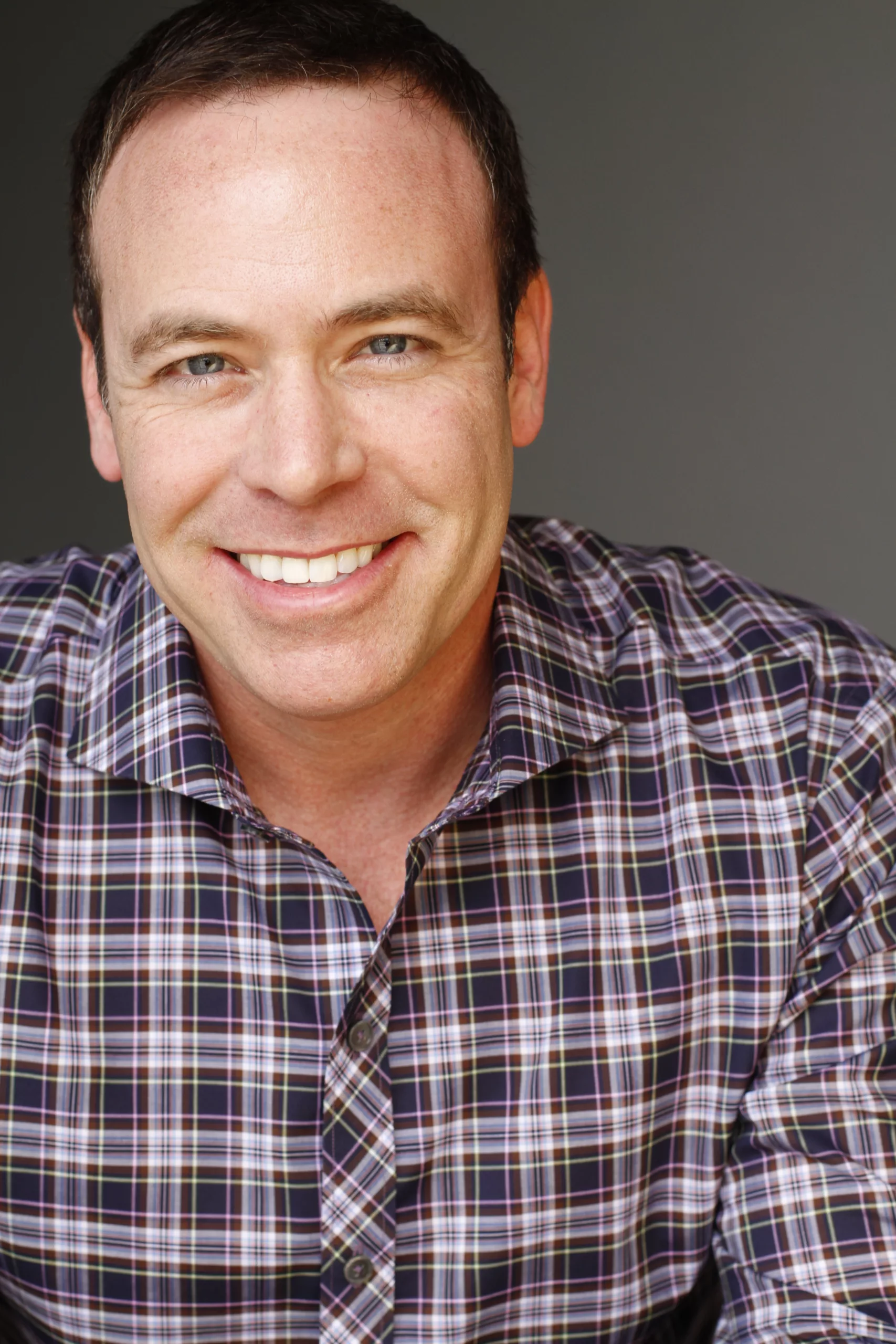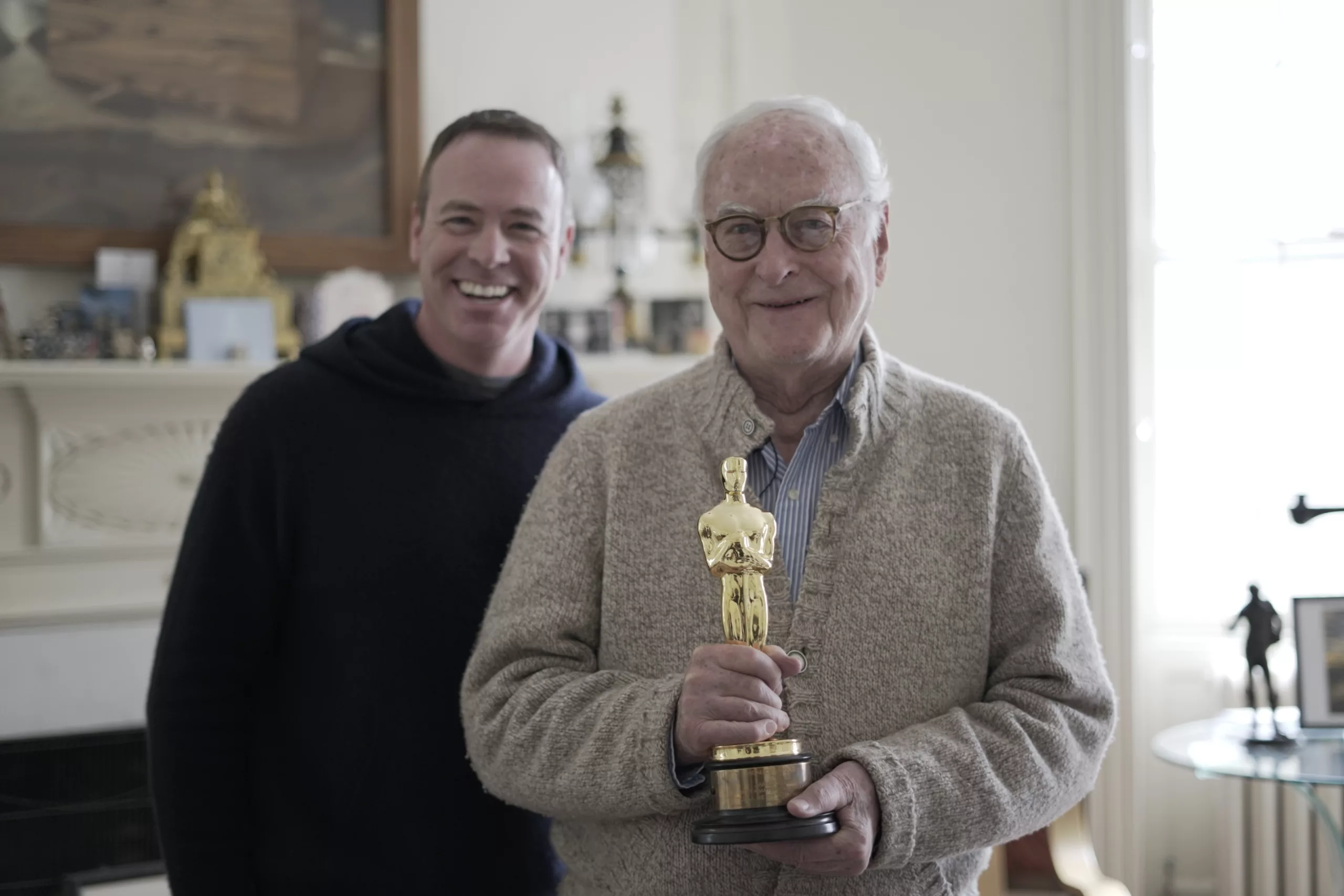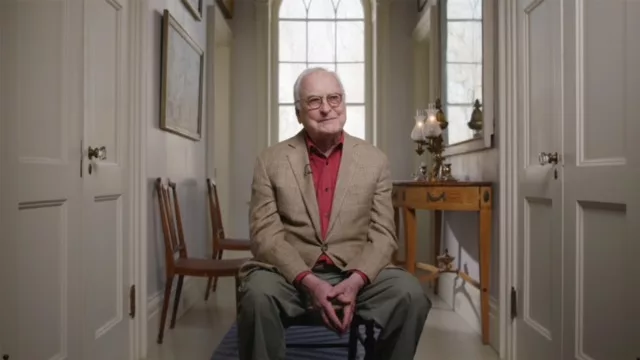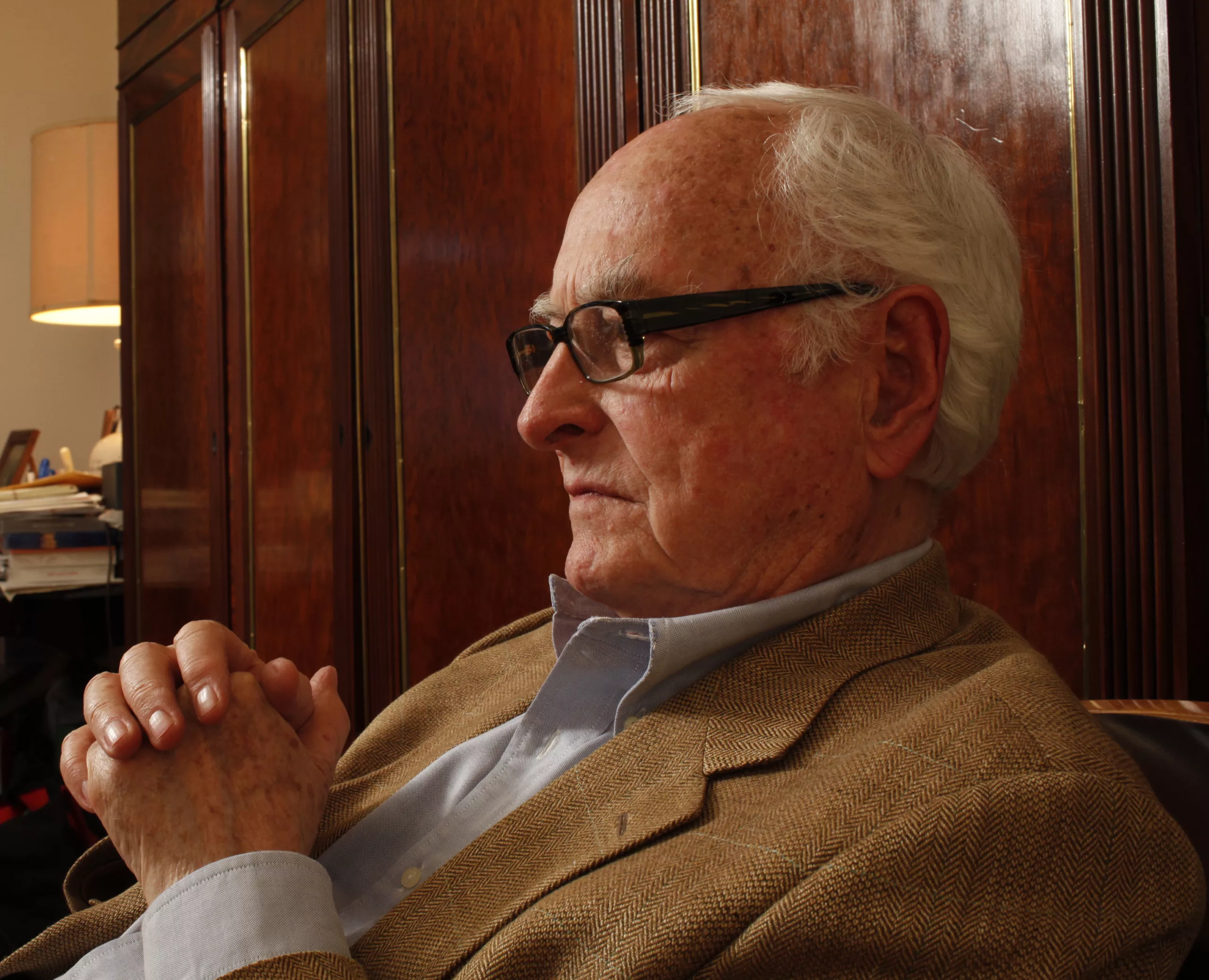For decades, producer Ismail Merchant and director James Ivory cornered the market on period dramas and literary adaptations. Their movies transported viewers to bygone eras and locations filled with exquisite details, erudite dialogue, and top-notch talent both behind and in front of the camera. Theirs was a storied partnership (and a behind-the-scenes love story) that brought over 40 films to the big screen, took home Oscars, and gave some of the finest actors of their generation–including Hugh Grant, Emma Thompson, Vanessa Redgrave, Maggie Smith, Anthony Hopkins, Helena Bonham Carter, Julian Sands, Rupert Graves, and many others–some of their most memorable roles.
But Merchant Ivory has a story of its own, and in Stephen Soucy’s extensive documentary named after the powerhouse team, taking a trip to the not-so-distant past is a rich and rewarding reevaluation of their work and relationship. With well over a dozen interviews with previous collaborators dating back to the pair’s early work in India, “Merchant Ivory” appreciates all they managed to accomplish on tight schedules and modest budgets, through Merchant’s clever business savvy and home cooked meals and Ivory’s on set collaborative process. The documentary goes on to highlight undersung contributors like author Ruth Prawer Jhabvala, who won 2 Oscars for her adapted screenplays, and composer Richard Robbins, whose soaring work swells the emotional scenes of many of their movies like “A Room with a View,” “Howard’s End,” and “The Remains of the Day.”
Merchant Ivory was more than a successful run of movies, it is a love story for the ages, one that can be seen reflected throughout their life’s work. With a wry smile and warm memories, James Ivory shares his love, admiration, sometimes frustration with his longtime partner in life and art, Ismail Merchant, next to the director of the movie about his life, Stephen Soucy.
This interview has been edited and condensed.
When people think of a Merchant Ivory film, they may think of one of the more popular titles like “Remains of the Day” or “A Room with a View,” but in the scope of “Merchant Ivory” the documentary, we see that definition grow beyond just a few titles. What does Merchant Ivory production mean for you?
James Ivory: They’re intelligent. They were intelligent because we had an intelligent writer who saved us from any nonsense and putting it up on the screen. They take place in the past, sometimes in the present that are not that familiar to people. There is a foreign-ness about our films, even those set in America. I don’t mean they’re foreign in a sense of style but they’re just about people or situations that are just not that well known here. Even the supremely American movie like “Mr. and Mrs. Bridge” with American stars, there’s something about that film that’s not like your usual American story about life in Kansas City.
Stephen Soucy: I would say these films are often about outsiders. They sometimes take the view from an outsider’s perspective. Jim made his first films in India where he’s not from India, he’s kind of an outsider with that view.

Tied to that sense of an outsider’s perspective, James, I think one of the things that sets your directing style apart from what we’ve come to expect in American cinema is your use of silence and closeups. You use these very beautiful closeups of the actors that let you in on their characters’ interiority and emotions, but you also capture the exquisite details of their surroundings. How did you learn that skill?
Ivory: I had a great cameraman to begin with who sort of set my style. I think though I went away from that as I went on but I had Satyajit Ray’s cameraman, Subrata Mitra, and if you are familiar with Ray’s films, there is a quality about the closeups of people and particularly of women, that’s quite extraordinary. That came into my films just automatically with Subrata Mitra when he did closeups. And I liked doing closeups! I find them very interesting to do, and they’re hard to do sometimes because they have to be absolutely perfect in the sense that everything has to be exactly okay. The face has to be lit in such a way that it is not attractive. They’re beautiful in a false way, but this character has to come through as it really is. Not every cameraman is interested in doing that. Mine have always been. They knew what I wanted.
Soucy: I was really struck by what Jim was saying about closeups. There are definitely flashes of things that I put in my film, like the closeup of Maggie Smith in “Quartet,” where she’s in the club sitting there watching what’s going on. Or Emma Thompson in “Howards End” when she’s in front of the mirror and she’s upset, she’s crying and that’s a closeup. I was thinking of the lighting and how her face was lit. I just think there’s just so many examples of the beauty of what you’re describing. It’s all over Jim’s films and Merchant Ivory films.
You mentioned in the documentary “Merchant Ivory” that Ray had mentored you and had worked on one of your earliest films.
Ivory: He did. “The Householder,” he totally recut it. The whole film became a flashback.
Were there other techniques and tricks that you learned from him?
Ivory: There were, but I wasn’t aware of it really happening so much. But later on when I would look at a film maybe I’d made a few years before, I would think this is very Ray somehow. It was an influence. It is still there. If I were to go out and make another film now, it would be there as well.

The documentary features numerous interviews with what feels like countless collaborators both behind and in front of the camera. Someone said that you hired the best people and trusted them to do the work. What did that collaborative process look like?
Ivory: I believe that that’s how I’ve always worked. I’ve gone to a lot of trouble to hire particular people to work in my films as cameramen and set designers and costume designers and hair and makeup and all those things. And I just let them do what they know how to do. And then if for some reason, I don’t like it, then I get into it and I get them to change something. It has given our films a kind of definite look. If we’re doing a period film, they’re not going to listen to any nonsense from the actresses and actors about the hair. Their hair is going to be done as it should be done. It took a while for the actresses to get used to that idea, but they soon did. Actors hated to have their hair cut, but if you’re going to do a film set in the twenties and thirties and forties, the men had short hair and there was nothing hanging down.
One of the collaborators we hear from is casting director Celestia Fox, who says that your casting sessions weren’t typical auditions. What was your process to find your cast?
Ivory: They would just come and we’d talk, and some people immediately I knew I wanted them and others I thought, well, maybe not this film but another film. I kept note of people who were interesting but not right for the film I was making. That was pretty much how I did it.
Soucy: Celestia Fox only has a tiny piece in my film. We talked for longer and one of the things that she said was [that] they would just come in and talk. Sometimes he would get to know them or they’d be around the table. Somebody would come in and they would just start talking. It was a very low kind of pressure. It sounded like a situation for a lot of people that came in. He got to know them a little bit and…
Ivory: They didn’t have to do anything. If I got interested in somebody, then I would ask them to read. And I knew they could read. I knew they got it. They knew what I wanted and they knew that they could give it to me.
Soucy: I love that you mentioned Celestia because she was kind of the gatekeeper for young men. She brought in Daniel Day Lewis, Kenneth Branagh, Rupert Graves, maybe even Hugh Grant. She was known to be the one that brought in all these up and coming young actors in London.
In addition to the documentary itself, there are two new restorations playing with the film’s release: Merchant’s “In Custody” and Ivory’s “Roseland.” What’s it like to reintroduce these films to a new generation?
Ivory: Well, it’s interesting for me because I get to see them again sometimes. I haven’t seen them in ages and I’m attempting to see “In Custody” again. I haven’t seen it in a long time. I very, very much want to see it. Same with “Roseland.” It was a long time since I saw it. You see what you did and you more or less approve, or sometimes maybe you don’t, or sometimes you think, I wish I had someone else for that part.
Soucy: Cohen Media Group owns 30 films from the Merchant Ivory library, and they have been restoring one after the other. Next year, I think “Savages” is going to be restored and released. It’s just wonderful that Cohen is taking this library and really making these films look as great as they can look. One of the things I hear most often from the film festivals we’ve been in, everybody comes up to me and they’re like, your documentary makes me want to go back and see the Merchant Ivory films that I’ve loved, but then I just learned about so many Merchant Ivory films that I did not know about. I think that’s definitely part of the fun of it.

The documentary also expands the public perception of Merchant Ivory from just beyond James and Ismail, but also Ruth Prawer Jhabvala and Richard Robbins’ contributions. How did that feel to include them in the narrative?
Soucy: It was very important to me. The film’s called “Merchant Ivory,” but Ruth was just such an important figure, and I heard that over and over again from Jim in the early interviews. And of course, I was aware of her. She was a novelist and a short story writer. Her short stories were published in The New Yorker, and she really considered that her most significant work. Yet she wrote these screenplays, did these wonderful adaptations, and won two Academy Awards for them. Never went to the ceremonies, but took the awards, I guess. And a screenplay is a blueprint for the film. She was such an important figure from “The Householder” all the way through so many films.
And then Richard Robbins – I made a short animated film that Jim did the narration for called “Rich Atmosphere: The Music of Merchant Ivory Films.” That’s how I got to know Jim. He liked that film a lot and was impressed by it. But for me, the music in Merchant Ivory films was always so important. The story was important. The direction was important, how they were produced was fascinating, but Richard Robbins and his incredible compositions, that music just kind of stays with you, and it’s gorgeous. All four of them were doing incredible work.
Ivory: I felt particularly with regards to music, that there was a period when it seemed maybe Dick wasn’t going to do our music anymore. And I thought, I don’t know what we’ll do. It won’t be a proper Merchant Ivory film without his music. I mean, it all sort of worked out that he could then do it. Unfortunately, he could not do the last film because he had Parkinson’s Disease, and really, he said that he would work and do a day’s work, and then the next day he would spend the next day correcting the mistakes he made the day before. It finally became too much. He wouldn’t do it anymore.
Ruth was pretty involved throughout your career. What did your collaborations look like?
Ivory: Well, it helped that we all lived together in the same building. We were all very close friends. So our discussions of this, that, and the other screenplay went on all the time. It was always an ongoing conversation about whatever film we were working on. I can remember this well, she gave me a screenplay, she’d just finished the draft, and then I read it, and I [got] furious. I remember throwing it down and standing my foot on it. Well, they sat at the breakfast table just looking on and me doing this incredibly stupid thing, throwing the script on the floor and stamping on it. And then they sat there and watched while I had to pick up all the pages and put them back together. I never did that again. That was the sort of thing that went on. We felt very strongly about what we were doing and how it should be done.

Since you both are directors, Stephen, was it ever intimidating to take on the responsibility of telling the Merchant Ivory story?
I really revered these films. I love other filmmakers as well, of course, but these Merchant Ivory films were important to me. I just did this because I felt like for cinema history, it had to be done. It should be done. I just kept that as kind of my mantra as I went through. I will say I was inspired by Ismail Merchant and the fact that Merchant finished every single project that they embarked on. When they would start production, they brought it all the way to the end. That’s incredible when you’re looking at 43, 44 feature films. Of course, I felt a lot of responsibility.
To your question about a director working with a major director, I would listen to Jim and Jim would occasionally have a note. An example of this is that he really wanted Ismail the director featured in the film. And that was very important. There was a moment where we needed to get the runtime down. And I was like, oh, maybe I can cut that, and he’s like, no, don’t cut that. I totally agreed, but again, it was nice to have to bring the film to him at various stages and get his occasional notes.
James, what was the process like of revisiting all these memories, sharing all these stories and watching the final film?
It is fun to reacquaint yourself with things. And in the process, I’ve been seeing some of the films again, which I haven’t seen in a long time. I’m struck by this, that, and the other about them, both positive and negative. But there’s not a single film I ever made that I’m sorry I made. I will stand by every single one I ever made because nobody ever fooled around with our movies. Nobody ever fiddled with them or recut anything. They’re exactly as we made them.












